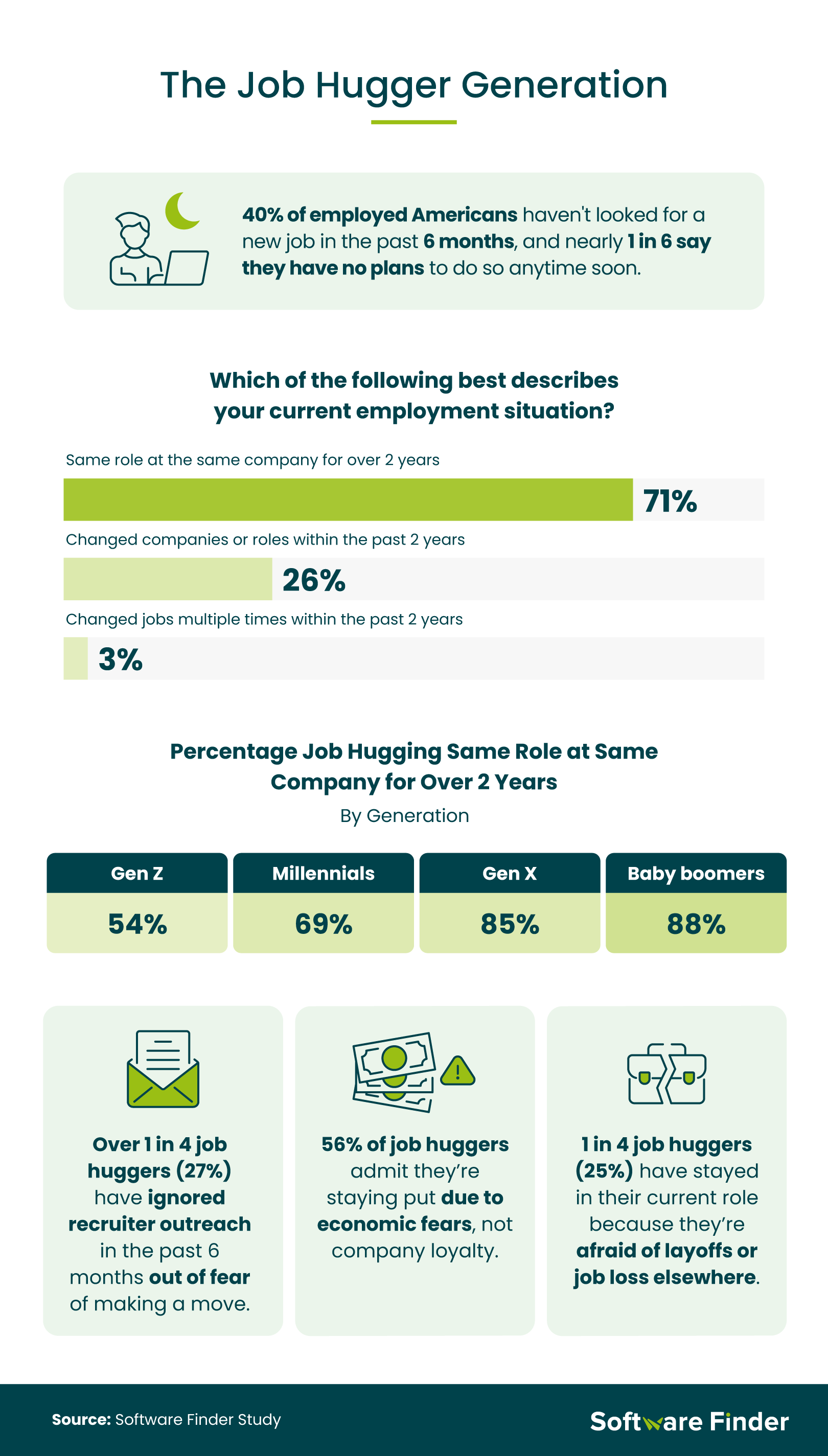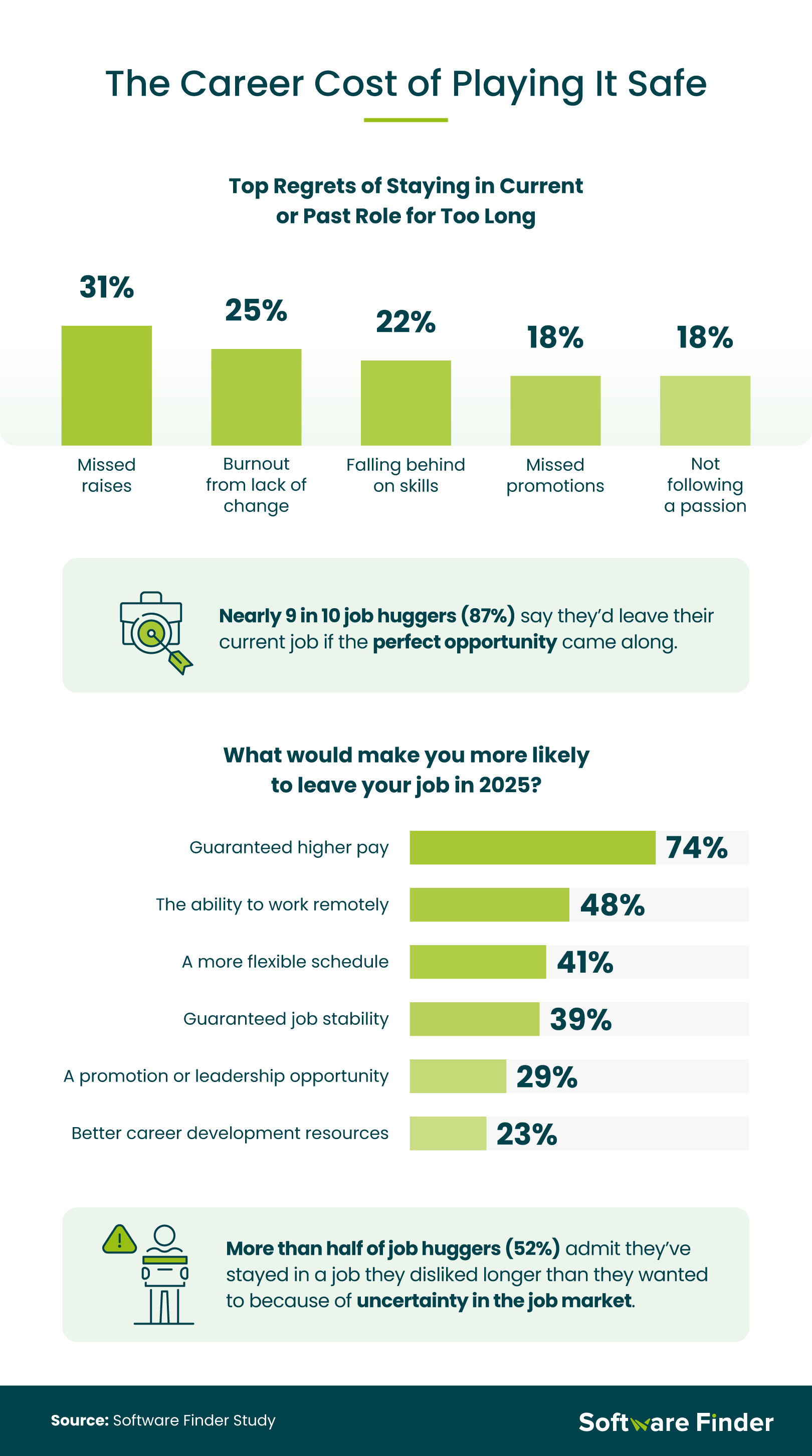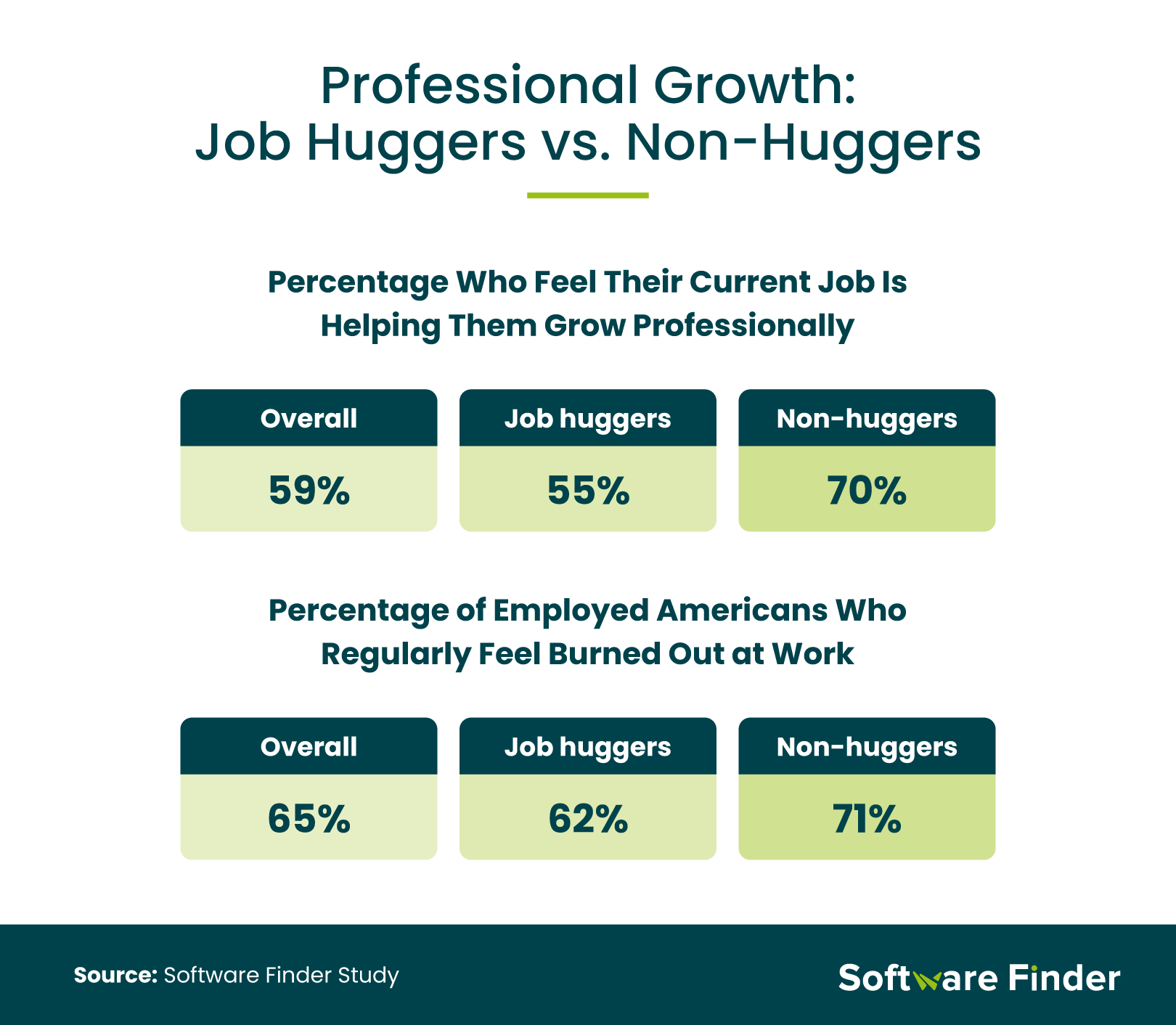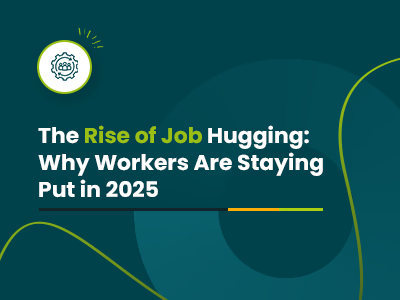With economic uncertainty still looming large, American workers are rethinking the risks of job hopping. A new survey reveals a striking trend: employees are holding onto their current roles tighter than ever, a behavior now dubbed "job hugging."
Rather than chasing new opportunities, many are choosing stability over advancement, driven more by fear than loyalty. This study uncovers who's job-hugging, why they're resisting the job market, and what it means for career growth and workforce mobility.

- 71% of employed Americans are job-hugging, remaining in the same role at the same company for over two years.
- Men (72%) are slightly more likely than women (70%) to be job huggers.
- Industry-wise, hospitality (82%), healthcare (76%), education (71%), and retail/e-commerce (71%) workers are most likely to be job huggers.
- 40% of workers haven't looked for a new job in the past 6 months, and nearly 1 in 6 say they don't plan to anytime soon.
- Gen Z stands out: just 6% say they have no plans to job hunt, and 35% are actively searching, far more than Gen X (23%) or millennials (13%).
- For some, job hugging is taking a toll, with 34% reporting a negative impact on their mental health.
- 13% cite concern about a softening job market as their reason for remaining in their current position.
- More than half of job huggers (56%) attribute their decision to economic fears, not loyalty, especially in retail (67%), marketing/media (65%), government (63%), and healthcare (61%).
"The scale of job hugging caught us off guard. It shows just how much economic anxiety is reshaping worker behavior across every major industry."
— Adnan Malik, CEO of Software Finder

- Nearly 1 in 3 job huggers (31%) regret missing raises by staying in the same role too long.
- Finance (45%), tech (35%), and manufacturing (32%) workers are the most likely to say they regret missing raises.
- Marketing professionals (31%) were most likely to regret missing promotions by staying in place.
- Half believe they're professionally falling behind because they haven't made a career move.
- 1 in 5 regret not changing jobs during the Great Resignation.
- More than a quarter (26%) have applied for new jobs but pulled out due to fear or uncertainty.
- Still, many remain open to change: 95% in manufacturing, 92% in hospitality, and 90% in retail/e-commerce say they'd leave for the right opportunity.
"Staying put can feel safe in the moment, but for many, it's costing them real progress, with missed raises, promotions, and chances to grow their careers."
— Shane Elahi, COO of Software Finder

- Job hugging seems to reduce burnout: 62% of job huggers feel shielded compared to 71% of non-huggers who report high burnout levels.
But that sense of safety comes at a cost. Only 55% of job huggers say their current role supports professional growth, compared to 70% of non-huggers.
"There's a clear trade-off between feeling secure and staying challenged. When people choose stability, they often put their development on hold without realizing it."
— Marium Lodhi, CMO of Software Finder
Methodology
This survey was conducted to understand whether fears about economic instability are prompting workers to cling tightly to their current roles. We surveyed 1,002 employed Americans in September 2025. Respondents were required to be currently employed. Among respondents, 16% were Gen Z, 56% were millennials, 23% were Gen X, and 5% were baby boomers.
About Software Finder
Software Finder connects businesses with the right software solutions to drive productivity and growth. Whether you're navigating workforce changes or scaling operations, Software Finder provides expert insights and tailored recommendations across industries, from HR and project management tools to ERP and collaboration platforms.
Fair Use Statement
If you'd like to share or reference this data, you're welcome to do so for noncommercial purposes. Please include a link to SoftwareFinder.com with proper attribution.
